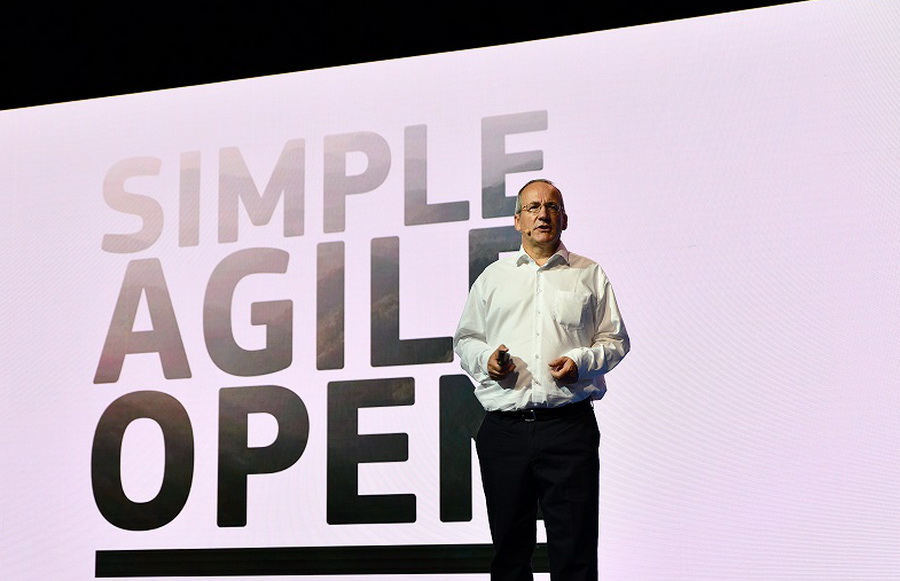Simple, Agile and Open: Amadeus’ SVP of Airlines R&D opens up about new philosophy
Contributors are not employed, compensated or governed by TD, opinions and statements are from the contributor directly

A couple of weeks ago I had the good fortune to be invited to spend a few days in Istanbul, a sultry and seductive city if ever there was one, at the pleasure of airline ‘techsperts’ Amadeus who were hosting the Amadeus Executive Summit 2019 (AES).
There were three major themes at play during AES 2019, success in retailing, innovation through partnerships and seamless traveller journeys all against the backdrop of Amadeus new philosophy; been distilled into three words – ‘Simple, Agile and Open’.
Intrigued by the concept I tracked down Christophe Bousquet, Amadeus’ SVP of Airlines R&D to learn about the inception of the idea and what simple agile and open actually means for Amadeus and its partners.

TD: So Christophe, ‘Simple, Agile and Open’, what’s that all about?
CB: I don’t know whether you had the occasion to attend the presentation this morning, but what I was presenting is a move towards transformation along three main axes. Simple, agile and open.
Simple meaning two things basically, first simplifying the industry – the industry was created a long time ago but if we knew 20, 30 years ago what we know now things would obviously be done very differently. And simplifying the travel journey — so basically making the life for travellers as easy as possible.
“Clear, well documented API’s”
Second we have ‘Agile. More and more we see that our customers want speed, they want things to be delivered quickly but still with quality and that’s always the difficulty to be as good as before but faster. For our customers that means a shorter cycle when delivering software and giving value earlier than we have in the past.
The third thing is ‘Open’, which means opening our environment. There are a few definitions of an open platform in IT but basically it means, clear, well documented API’s — and the ability for third parties to develop solutions on top of our solutions.
Why have you switched to that model?
Well we don’t do that for the sake of being simple. We do that in order to be in a position to deliver better software, which is easier to develop and will enable an airline to increase its revenue by selling better and by selling at the right price, as well as selling ancillaries developed by third parties.
“When we take on a commitment, we deliver it”
So when you came up with these three prongs of attack, was this the way you were working anyway but decided to give it a name to encapsulate the culture or was it totally new?
That’s a very good question. This actually came out from brainstorming. We were looking more at what we know are certain things that customer love. They love the fact that when we take on a commitment, we deliver it.
However we also want to improve, you know like any other company in the world, so we were looking at where we can perform better. For example, ‘Simple’, sometimes we are seen as complex –that’s not just us to be honest with you, it’s the whole industry– so that’s how that came about.
Agile. Again sometimes we were in a position where we want to get the value earlier. This is not specific to the travel industry but all of IT where everybody wants the value delivered more swiftly.
When it came to ‘Open’, [we decided] you have to be a bit less protective and that you have to allow for third parties. Why do you allow third parties? Typically, because one goes with the other, if we have a platform which is open and we have third parties that have developed solutions on top of this platform — that means two things. One, there will be an existing solution beyond the Amadeus software that will be proposed to our customer when they join our platform.
“We have to be good and we have to be relevant”
Moreover, it also means that don’t need necessarily to work with us, when they want to handle the products, they can also work with these third parties. This also gives them speed in delivery because they can choose to work with their own IT people or even with a local company.
So the idea was really to identify where we are good, make sure that we are still good at it and let’s try to improve where we think that our customers are expecting us to improve.
Have there been any surprises along the way?
Something which is interesting is that we are now choosing to put ourselves in competition with our own ecosystem. Typically, an airline would have the choice sometimes to say, “Okay, I’m going to use the digital platform for menus”. But, the UI itself can be developed by Amadeus or it can be developed by another company [on the Amadeus open platform). This means that if we want to continue providing Amadeus’ services we have to be good and we have to be relevant. So we’re not the choice by default. We’re the choice because we have been chosen.


Comments are closed.